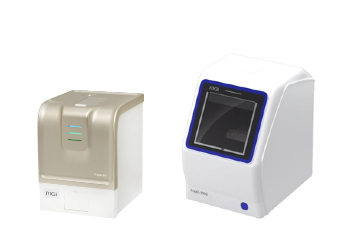Starting from March 14, 2022, Shenzhen was under a one-week lockdown, shutting down all bus and subway systems and the businesses not providing essential services were closed. Meanwhile, employees worked from home to implement a closed management system in communities, villages in cities and industrial parks. The lockdown has also been accompanied by three rounds of city-wide, mass testing, according to a government notice.


At this critical time, medical resources were especially precious. Usually, doctors need to wear protective clothing before entering the isolation wards and fever clinics to conduct ultrasound examination on the patients. It takes up to one hour to complete an ultrasound examination with increased risk of cross-infection between doctors and patients.
MGI Robotic Ultrasound System, MGIUS-R3, is composed of doctor end and patient end. The patient end is deployed in the fever clinic or isolation ward in the hospital. The application of MGI remote ultrasound robot enables the doctor to conduct "remote real-time diagnosis". It only needs about 10 minutes to complete the examination on the patient, which improves the diagnostic efficiency and eliminates the risk of cross infection, providing safety and convenience for both doctors and patients.

Previously, MGIUS-R3 has played a role in remote ultrasonic physical examination in the pandemic control and prevention across China. During the Winter Olympics, MGIUS-R3 supported doctors at Peking University Third Hospital to conduct remote real-time scanning and consultation for patients in a closed loop system. Earlier this year, MGIUS-R3 was delivered to the Second Affiliated Hospital of Xi'an Jiaotong University overnight to assist the doctors in cross-regional consultations, contributing to the Xi'an's COVID-19 response.
We believe that with the joint efforts of all residents, medical staff and all sectors of the society, life will be back to normal. MGI will continue to commit to upgrading its innovative platforms to fight the pandemic.



 Sequencer Products: SEQ ALL
Sequencer Products: SEQ ALL















 Technologies
Technologies Applications
Applications Online Resources
Online Resources Data Bulletins
Data Bulletins Service & Support
Service & Support Global Programs
Global Programs Introduction
Introduction Newsroom
Newsroom Doing Business With Us
Doing Business With Us Creative Club
Creative Club













